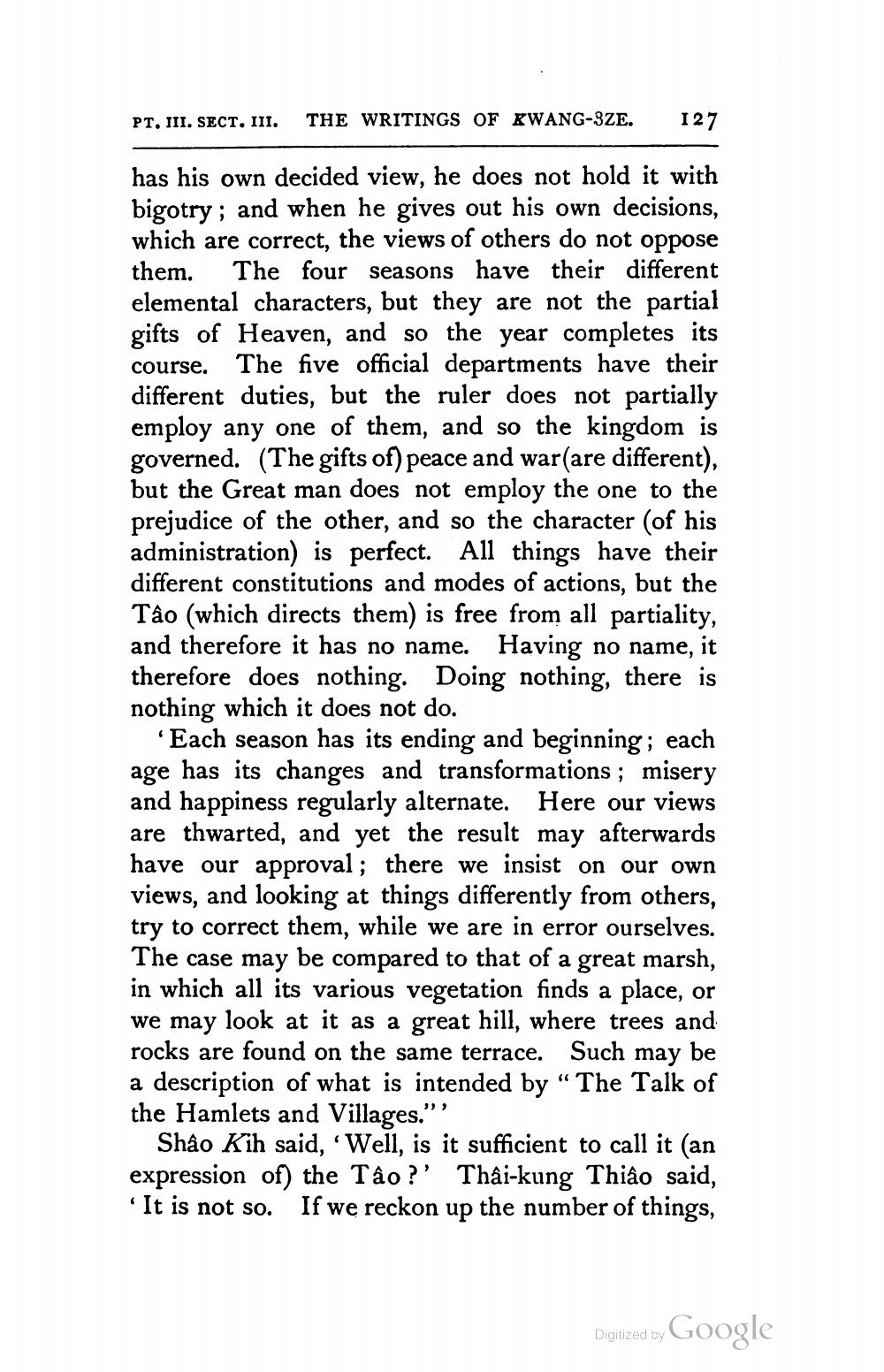________________
PT. III. SECT. III. THE WRITINGS OF KWANG-3ZE.
127
has his own decided view, he does not hold it with bigotry; and when he gives out his own decisions, which are correct, the views of others do not oppose them. The four seasons have their different elemental characters, but they are not the partial gifts of Heaven, and so the year completes its course. The five official departments have their different duties, but the ruler does not partially employ any one of them, and so the kingdom is governed. (The gifts of) peace and war(are different), but the Great man does not employ the one to the prejudice of the other, and so the character (of his administration) is perfect. All things have their different constitutions and modes of actions, but the Tâo (which directs them) is free from all partiality, and therefore it has no name. Having no name, it therefore does nothing. Doing nothing, there is nothing which it does not do.
'Each season has its ending and beginning; each age has its changes and transformations ; misery and happiness regularly alternate. Here our views are thwarted, and yet the result may afterwards have our approval; there we insist on our own views, and looking at things differently from others, try to correct them, while we are in error ourselves. The case may be compared to that of a great marsh, in which all its various vegetation finds a place, or we may look at it as a great hill, where trees and rocks are found on the same terrace. Such may be a description of what is intended by “The Talk of the Hamlets and Villages.”
Shâo Kih said, 'Well, is it sufficient to call it (an expression of) the Tao ?? Thái-kung Thiâo said, 'It is not so. If we reckon up the number of things,
Digitized by Google




